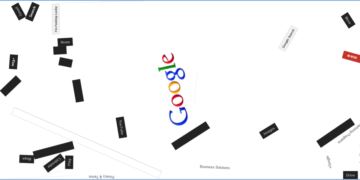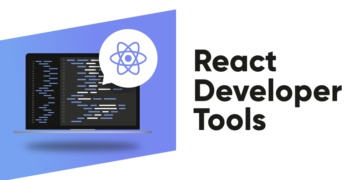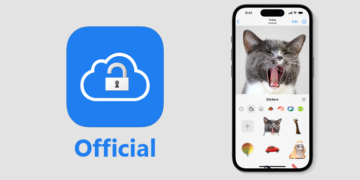Brook B Taube is a name synonymous with success in the business world. But beyond the boardrooms and deal-making, lies a life dedicated to balance, a pursuit often challenging yet crucial for sustained well-being and achievement. This article delves into the life and philosophy of Brook B Taube, exploring how he navigates the complexities of a demanding career while prioritizing his personal life. While specific details about Taube’s personal life may be limited due to privacy, this exploration will focus on the broader principles of work-life integration that his career exemplifies, drawing upon general best practices and insights applicable to anyone striving for a balanced life.
The Demands of Success:
High-achieving individuals like Brook B Taube often face immense pressure to perform. The business world is competitive, demanding long hours, constant travel, and high-stakes decision-making. This relentless pursuit of success can easily encroach upon personal time, leading to burnout, strained relationships, and a decline in overall well-being. The challenge lies in finding a sustainable rhythm, a way to excel professionally without sacrificing personal fulfillment.
The Importance of Intentional Living:
One of the key principles underlying a balanced life is intentionality. It’s about consciously deciding how you want to spend your time and energy, rather than letting external pressures dictate your schedule. For someone like Brook B Taube, this might involve setting clear boundaries between work and personal time, prioritizing tasks, and delegating effectively. It’s about recognizing that time is a finite resource and making conscious choices about how to allocate it.
Strategies for Work-Life Integration:
While the concept of “work-life balance” often implies a strict separation between the two, “work-life integration” is a more nuanced and realistic approach. It acknowledges that work and personal life are intertwined and seeks to create a harmonious blend between them. Here are some strategies that can contribute to effective work-life integration:
- Time Management Techniques: Effective time management is crucial for maximizing productivity and creating space for personal pursuits. Techniques like the Pomodoro Technique, time blocking, and the Eisenhower Matrix can help prioritize tasks and allocate time efficiently.
- Setting Boundaries: Establishing clear boundaries between work and personal time is essential. This might involve setting specific work hours, avoiding checking emails after a certain time, and dedicating specific time slots for family, hobbies, and relaxation.
- Prioritization and Delegation: Learning to prioritize tasks and delegate effectively is crucial for managing a heavy workload. Focus on the most important tasks and delegate less critical ones to others whenever possible.
- Leveraging Technology: Technology can be a double-edged sword. While it can be a source of distraction, it can also be a powerful tool for managing time and staying connected with loved ones. Utilizing productivity apps, scheduling tools, and communication platforms can help streamline tasks and create more space for personal life.
- Mindfulness and Self-Care: Prioritizing self-care is not a luxury; it’s a necessity. Practicing mindfulness, engaging in regular exercise, and getting enough sleep are essential for maintaining physical and mental well-being.
- Building Strong Relationships: Nurturing strong relationships with family and friends is crucial for emotional support and a sense of belonging. Making time for loved ones and engaging in shared activities can help strengthen bonds and create a sense of community.
- Pursuing Hobbies and Interests: Engaging in hobbies and interests outside of work is essential for maintaining a sense of balance and preventing burnout. Pursuing activities that you enjoy can help you relax, recharge, and tap into your creativity.
The Importance of Flexibility:
Life is unpredictable, and unexpected events can disrupt even the best-laid plans. Flexibility is key to navigating these challenges and maintaining a sense of balance. Being adaptable and willing to adjust your schedule when necessary can help you stay on track and avoid feeling overwhelmed.
The Long-Term Perspective:
Building a balanced life is not a sprint; it’s a marathon. It requires ongoing effort, commitment, and a willingness to adapt and learn. It’s about making sustainable choices that support your long-term well-being and allow you to thrive both personally and professionally.
Lessons from Successful Individuals:
While specific details about Brook B Taube personal life may not be readily available, his success in the business world suggests a strong ability to manage competing demands and prioritize effectively. By studying the principles of work-life integration and drawing inspiration from successful individuals, we can learn valuable lessons about how to create a more balanced and fulfilling life.
Conclusion:
The pursuit of balance is a lifelong journey. It’s about making conscious choices, setting boundaries, and prioritizing what truly matters. While the demands of success can be significant, it’s possible to achieve a harmonious blend between work and personal life. By embracing intentional living, utilizing effective strategies, and prioritizing self-care, we can create a life that is both successful and fulfilling. The example of figures like Brook B Taube, even with limited public information about their personal lives, serves as a reminder that achievement and well-being are not mutually exclusive; they can coexist and even complement each other.
Also Read :
Breaking News: Alan Jackson’s Hospitalization – The Inside Story


























